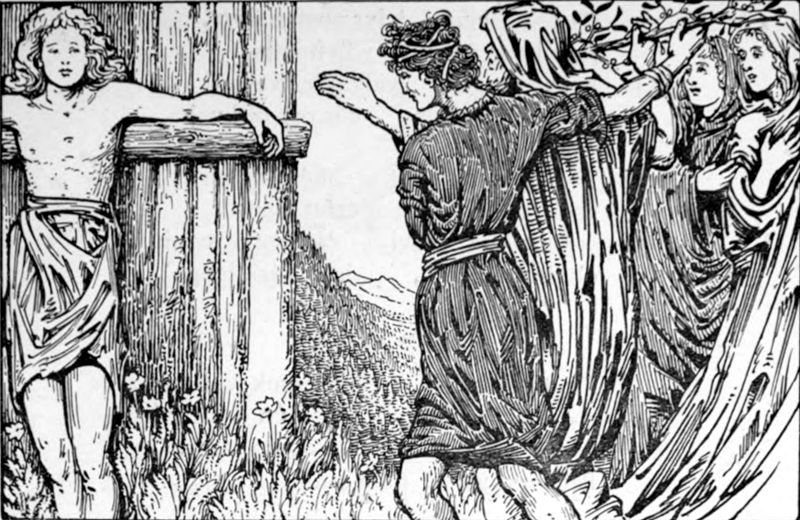The origins of Friday 13th
It seems that Friday 13th has struck me down. I'm lying in bed with a jumper on looking like a sallow lump of pale flesh. Hello, ladies.
Good job I'm not superstitious then, but because it's such a notorious day I thought I'd talk about where it might have come from and why people tend to fear it so much in some countries.
The most popular theory is that the belief comes from the Last Supper having 13 people at the table, as in the Christian religion Judas Iscariot was the betrayer of Christ. Also, Jesus was apparently crucified on a Friday, the same day that Cain slew Able. However, I find this theory to be quite a strange one, especially when you consider that Italy, a country jam packed with Catholics, actually considers the number 13 to be lucky and rather Friday 17th to be the unlucky day.
"It stands to reason that pagan people would have considered Friday as actually quite a fortuitous day"
The next reason could have been that on Friday 13th October 1307, King Philip IV ordered the arrest of the Knights Templar. Again, this one doesn't sit right with me. This particular event probably wouldn't have been a catalyst for such a global wave of superstition - it seems far too obscure and impersonal. In fact, I don't think Friday 13th has a singular origin at all - I'd posit that common folklore beliefs about the day Friday and the number 13 came together and amalgamated into sort of an 'ultra' unlucky day. Hell, we don't even have documentation of Friday 13th being an unlucky day until the 19th century, so that's a bit of a giveaway.
You would have to look to the origin of the word Friday to find out why it could be deemed as unlucky. As an good student of mythology knows, Friday is derived from the Norse goddess Frigg, the goddess of fertility and marriage. It stands to reason that pagan people would have considered Friday as actually quite a fortuitous day, particularly on a wedding occasion. But like most other things, when the pagan Teutonic peoples were Christianised, the new religious order turned Frigg, whose sacred animal was a cat, into a witch - a woman of evil magic.
"It's not unlikely that these unfortunate days were created as a result of demonising Frigg"
It's probably no coincidence, then, that Friday held a negative significance to Christians. As I said before, Jesus was supposed to have been crucified on a Friday. Adam and Eve ate the forbidden fruit in the Garden of Eden on a Friday and died on a Friday, apparently. It's not unlikely that these unfortunate days were created as a result of demonising Frigg.
So we have Friday down, but what about 13? The Last Supper hypothesis seems like a good one, but really we have to go back again to Norse mythology to discover some crucial details. According to the legend, 12 gods feasted in the great banquet hall in Valhalla. Loki, the trickster god, showed up uninvited, being the 13th guest at the table. Also at the table was Balder, the pure. He was invulnerable after his mother Frigg spoke to every living and non-living thing and asked them to promise that they would never harm her son. However, she thought the mistletoe to be too inconsequential to speak to so did not. Loki caught wind of this and convinced Balder's blind brother Hod to have a go at throwing mistletoe at Balder. Loki guided his arm and threw the mistletoe at Balder, killing him instantly, an event that followed a great mourning by the gods as Loki slipped away.
You can see the parallels here between the Norse religion and the Christian story. Both involve a traitor killing the purest of people. Both have 13 people dining around a table. This could very well be the origin of where the superstition of 13 came from.
Could it be that we have Norse pagans to thank for Friday 13th? It's definitely a possibility, but I'd be interested to hear what you think.
Now, back to bed for me.


Comments
Post a Comment